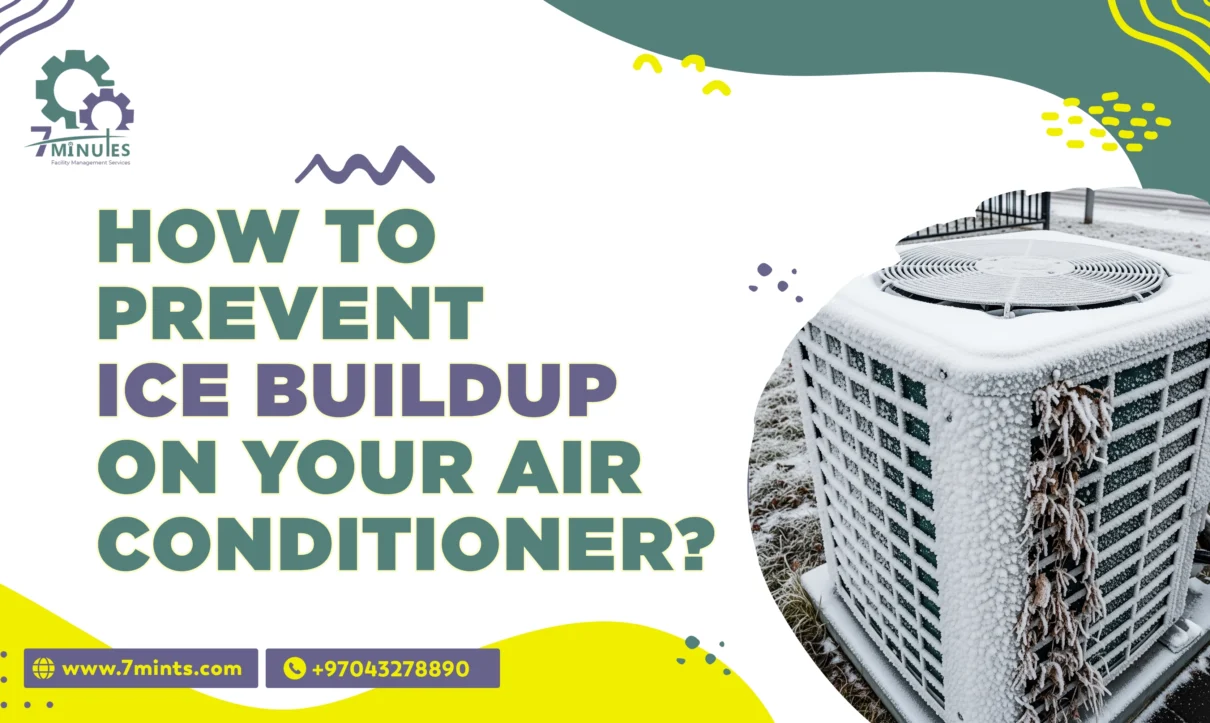Ice buildup on your air conditioner is, in fact, a very annoying problem, with the paradox that even with the AC running, the home could feel warm and uncomfortable. A common thing that scares many is seeing ice on their air conditioning unit during sunny weather, which should not happen. When unchecked, ice buildup will cause many problems for your air conditioner and for larger repairs. Now, the happy news is that simply by applying some measures and maintaining the unit well, ice formation can be avoided, and your air conditioner can run efficiently through summer. This blog will walk you through why ice forms, how you maintain the system, and what lifestyle habits to embrace for a cool, comfortable home.
Why Ice Forms on Air Conditioners
It is wise that you know the cause of it. Several of these causes will lead to a freeze, most of which would be something related to airflow, refrigerant levels, or maintenance work. Knowing these causes will give you an upper hand in keeping your air conditioner going.
Low Refrigerant Levels
Refrigerant is the substance in your air conditioning system that absorbs heat from your home and transfers it outside. When refrigerant levels drop, typically due to leaks, coil pressure falls below what is considered acceptable. Consequently, the coils get colder than normal, and moisture can freeze by simple contact. Whatever the source, low refrigerant causes ice buildup; it further blocks cooling capacity and, if neglected, may cause permanent damage to your system.
Dirty Air Filters
The air filters hold any dust, pollen, and other particles entering inside and ensure proper cleaning of the indoor air. Whenever there is less restricted airflow, the coils inside your AC do not receive enough warm air and thus get too cold and eventually freeze. Checking and changing your air filters regularly is one of the very best methods to keep ice away and keep your air conditioner running freely.
Faulty Thermostat or Fan
An ice buildup can also develop as a result of a thermostat or fan malfunction. If the thermostat fails to read the temperature accurately, then it will run the AC longer than necessary and cause overshooting cooling of the coils. The fan should take a fair share of responsibility for this, too. If it is not moving air across the coils as it ought to do, those coils will freeze. Inspecting these little things regularly and ensuring they’re working well can really keep ice issues at bay.
Always Change or Clean Your Filters
In general, it is important to check your air filter every month and clean or replace it as needed. The cleaner air filter lets air pass freely through the system, so little load is placed on the AC, and the coils do not get too cold.
Schedule Tune-Ups
An annual inspection of the AC system by a licensed technician will catch small problems before they grow into bigger issues. A tune-up involves checking the refrigerant levels, cleaning the coils, checking the thermostat and fan, and making sure everything is operating as it should.
Check and Clear the Drain Line
Your AC’s drain line removes condensation from the system. If it becomes clogged, water will back up and might freeze on the coils. Regularly checking and clearing the drain line will ensure proper drainage and lessen the chance that ice will form. You simply need to flush the line with water and vinegar, which will keep mold and debris away.
Use Your Air Conditioner Properly
How you use your air conditioner heavily determines its performance and the potential for ice buildup. A few simple habits will go a long way to keep your air conditioning system running well and efficiently.
Set the Thermostat All Right
Set your thermostat too low, and your AC will put extra strain on itself in terms of working longer, thus increasing the chances that the coils will freeze. A comfortable temperature setting, somewhere between 24-26°C (75-78°F), should be good enough for most homes. This prevents overcooling and helps keep your system in steady, efficient operation.
Don’t Run the AC Non-Stop
Your air conditioner needs periodic breaks, so that is one of the ways it can keep from overworking and freezing. You can use a programmable thermostat that turns the AC off when you leave or during the cooler parts of the day. This saves on energy and allows your system to breathe. Check out our latest blog post on Essential Maintenance Tips for HVAC Systems in Dubai’s Harsh Climate
Keep Doors and Windows Closed
In order to keep a home cool and dry without exerting unnecessary pressure on the system, keep all doors and windows shut while the air conditioner is running. Any door or window left open will bring warm, humid air into the house and thus make it hard for an air conditioning system to maintain the set temperature. The moisture may then settle on the coils, freeze, and cause ice to hang.
Avoid Blockages
Make sure that your furniture, curtains, or any other objects are not blocking the return air vent or supply register. The proper flow of air is necessary to keep an AC freezing-free. Pull back the curtains or rearrange the furniture; this small change really helps with cooling the home.
Watch Out For Signs and Act Fast
Checking up on the system from time to time goes a long way in preventing ice from forming and doing costly repairs. Watch out for such signs and do something about them as soon as they come to your attention.
Check Reduced Cooling
If your air conditioner cools your home less than usual or you notice any ice forming on it, then it means something is wrong. Turn off the air conditioner to give it some time to thaw off completely before turning it back on. When the ice has fully melted, check if the air filters and air vent outlets are blocked, and if the problem persists, seek professional help to inspect the system.
Keep Track of Energy Bills
If your electric or energy bill suddenly gets higher than usual, then it is a sign that your system is probably working harder than it should, possibly due to icing problems or others. Checking energy use ever so often can alert you about issues before they become costly repairs. Ongoing maintenance and timely repairs keep your system efficient and your bills lower.
Check For Water Leaks
Water accumulating around your AC unit after the ice has melted is quite an indication that the drain line is clogged or there is another problem in the system. The quicker you address the water leaks, the better you can prevent water damage and your AC from losing performance.
Conclusion:
The ice buildup on your air conditioner can very well be avoided by routine maintenance activities and some wise usage habits. So now you know that keeping clean filters, arranging for tune-ups by professionals, using your AC in an efficient manner, and keeping an eye out for warning signs will give you a cool and comfortable home the entire summer. Don’t wait for the ice to become a nuisance—winterproof your system and comfort. If you need help with maintenance or repairs, contact us for expert service and advice. We’re here to keep your AC up and running and your home cool!










1 Comment
Comments are closed.